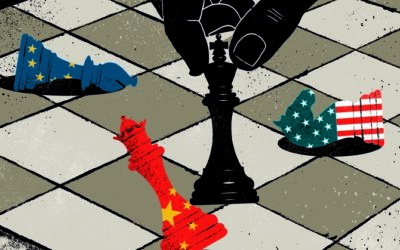Many of us face the dilemma when we have to choose between investing and paying down the debt(loan). If you just focus on paying off the debt, you may not have enough time or the money to garner the assets to retire. And if you invest too aggressively, you may end up losing everything. So, the question remains. Should you “Invest or pay off the debt?”. Although there is no binary answer to this question, I can give you some pointers to take an informed decision. For me personally, being debt free is a freedom.
Is it a good debt or a bad debt?
When we think of debts, we often think it is bad. Well, that’s not true. In debt, there is something called as ‘good debt’ and a ‘bad debt’. Why do we borrow money? To buy something right. Now that something could be an asset (puts money into your pocket), a liability (takes money out of your pocket) or a liability that we think is an asset.
If you borrow to buy an asset, put it to the right use and generate more income than your EMI (Equated Monthly Instalment), then it is a good debt. Else, it is a bad one.
Say for example, you buy a car and run it as a taxi or car pool where you earn more money than your monthly EMI+expenses, then car can be categorized as an asset and the debt becomes a good one.
Good debt = Earning > EMI + Running expenses -> Keep the debt on. Bad Debt = Earning < EMI -> Read on.
Invest or pay off (bad) debt ?

This is where the dilemma is. Although the decision of investing or paying off debt is based on certain parameters like your age, future cash flows and the risk factors, the most important factor that drives the decision is one’s ability to generate higher post-tax returns. Comparing the following two variables should guide you in the right direction.
- The rate of after-tax interest you are paying for the debt
- The rate of after-tax return you expect to generate from your investments
In other words, if you can generate a higher post tax returns than the rate of interest, you can think of investing rather than paying off debt. Your age can also influence your decision. By age, I mean how old you really are in numbers and not how you feel. 😊 If you are in your 20s, you have enough time to make mistakes, learn from them and cover them up. So, you can take on more risk by investing the extra cash for longer term than thinking to pay off the debt.
Also, the cash flow is another factor that can be considered to arrive at a decision. If you have a higher disposable income after paying the EMIs, you can take on more risk to generate higher returns. The Sensex itself has been able to generate over 15% in past 30yrs. So, the longer the time until you stop working, the greater is the potential payoff that you can enjoy with investing.
Here is a simple table which might help you decide. This isn’t a standard table but derived by me with certain assumptions.

Managing Debt: Building Cash Cushion
Keep at least 5-6 times of your monthly expenses (including EMI) aside for emergency. This cushion must be built before you start investing. Check your debt-to-income-ratio.
Debt-to-Income-Ratio = EMI / (Monthly Take home) If the ratio is more than 33%, either think of reducing EMI by making partial loan prepayment or try finding a job that fetches more take home income.
Managing Debt: Refinancing
Depending on the category of the loan, there are options to refinance a debt. Especially, the home loan with floating rate of interest or a long-term personal loan can be refinanced by banks or non-banking finance corporations at a lower rate, thereby reducing your cash out-go. But beware of processing changes.
When you refinance a home loan, ask for the valuation fee, legal charges and processing fee before deciding on the move. Do some due diligence with numbers to make sure, that you are really benefiting from refinancing, rather than blindly looking at the lower rate of interest.
Conclusion
I feel the decision of investing or paying off debt is more of an emotional decision than logical. Personally, being (bad) debt free is mental freedom for me even though the numbers indicate otherwise.
At the end of the day, be it investing or pay off debt, take a decision that lets you sleep well at night.



0 Comments